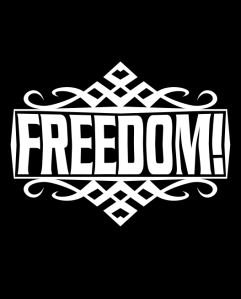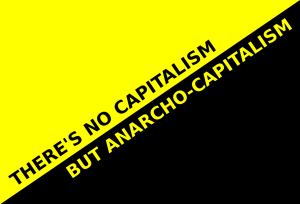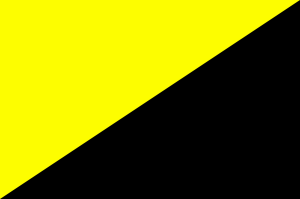 Freedom! is a ten chapter rant by Adam Kokesh that makes brief libertarian commentary on war, taxes, the environment, and many other topics. In the style of a political rally keynote, Kokesh attacks statism from a number of angles. His focus does not seem to be to educate the reader with an organized presentation of libertarianism, but instead to inspire them with a rapid tour of libertarian ideas.
Freedom! is a ten chapter rant by Adam Kokesh that makes brief libertarian commentary on war, taxes, the environment, and many other topics. In the style of a political rally keynote, Kokesh attacks statism from a number of angles. His focus does not seem to be to educate the reader with an organized presentation of libertarianism, but instead to inspire them with a rapid tour of libertarian ideas.
His message is generally on point, taking a pure anarcho-capitalist position on most issues. He rightly identifies government as the primary cause of pain and suffering in society. He points out a number of ways in which government makes the world worse off by citing problems caused by war, soldiers, government police, government courts, prisons, eminent domain, government schools, government intervention in medicine, welfare, prohibition and other government machinations.
One place where he seems to trip up is on the environment, saying:
“Thus, it is wrong to pollute in a way that spoils natural resources others could use or enjoy. It is wrong to claim land in order to prevent its use. It is wrong to limit access to natural resources for those who would put them to good use.”
Well, that’s three strikes in a row. If Kokesh uses virgin land as a garbage dump, he is spoiling a natural resources that others might have enjoyed. People could have used it to have a picnic, but Kokesh decided to use it for something else first. Well, according to libertarianism, Kokesh has not done anything wrong. There is nothing inherently better about using the land for one purpose over another. All that matters is that when Kokesh started polluting, nobody else was using the land for something else. Continue reading →







